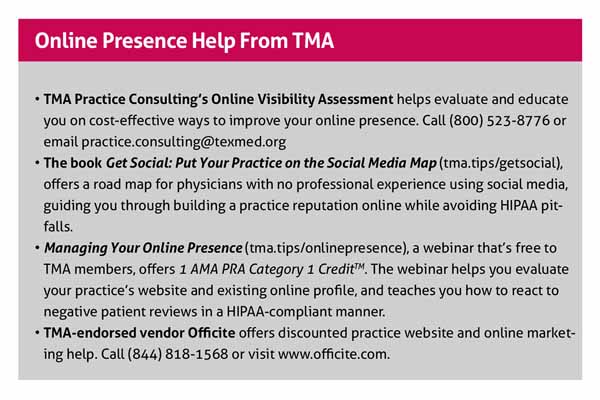
One practice’s recent legal battle epitomizes physicians’ worst nightmares when it comes to online reviews. Here’s an extreme but glaring real-world example, straight from the documents in a lawsuit that Austin Eye first filed in October 2017 over what the ophthalmology practice says were false patient reviews:
“When I noticed that my insurance totally paid for what I paid in cash in the office, I called them. Unprofessional staff hung up right in my face. … Only after the BBB complaint process completed, did I finally receive a refund check from these losers.”
Another review excerpt detailed in the same lawsuit, allegedly from the same reviewer posting under an alias: “Can you say FRAUD? Busted, Austin Eye!”
Those reviews just scratch the surface of what Austin Eye’s court filings say it experienced from one patient during more than a year of repeated false reviews and online harassment.
In May, a Travis County district judge ordered the patient who wrote those and hundreds of other reviews to pay Austin Eye $100,000 in sanctions and attorney’s fees. The judge found the patient “willfully, intentionally, and maliciously defamed … Austin Eye by publishing false and defamatory” statements.
The case shows what can happen when one disgruntled person abuses the public forum that sites like Healthgrades and Yelp give patients. It’s also a reminder for physicians everywhere to exercise extreme caution and prudence in how they deal with negative and false reviews.
“For the average practitioner, all it takes is one person with an axe to grind. They can truly just ruin your reputation and ruin your business,” says ophthalmologist Shannon Wong, MD, president of Austin Eye. “You can go through all the training, but your reputation in this day and age is what people see online.”
Hundreds of scathing reviews
According to court documents, the defendant in the lawsuit visited Austin Eye for an examination in March 2017 and underwent a refraction test to determine if a visual impairment could be corrected with glasses or contacts. Austin Eye required payment up front for the test, which insurance typically doesn’t cover. The patient signed the acknowledgment form and paid the $45 charge.
Austin Eye later learned his vision plan had agreed to cover the test, and mailed him a check to reimburse the $45. The patient then contacted Austin Eye and alleged the check was damaged, but refused to return it, according to court filings. So Austin Eye mailed him a replacement check, which he deposited on May 4, 2017, court filings say.
But the patient filed a complaint with the Better Business Bureau (BBB), claiming Austin Eye double-billed him for the refraction test. The practice shared a copy of its bank records with the BBB, but the patient claimed that the image of the check he cashed was “a false photocopied image,” court documents state. The BBB closed the complaint, but the disgruntled patient also complained to the Texas Medical Board (TMB), accusing Austin Eye of fraudulent billing, according to court filings. That complaint was also dismissed, as was a complaint the patient made to the U.S. Department Health of Human Services, court filings say.
The onslaught of scathing reviews, though, began in April 2017 and continued into 2018, per legal records. The practice’s court filings say the patient “launched a vitriolic online smear campaign against Austin Eye, involving over 100 demonstrably false online reviews over the course of three months,” including reviews posted under more than 20 aliases.
On one day alone in September 2017, court documents show, the patient posted false 1-star reviews from nine different accounts. Most of the reviews “tell the same fictional story,” Austin Eye claimed in its court documents: That the practice had double-billed the patient and refunded his money “only after considerable efforts on his part.”
After sending the patient two cease-and-desist letters without cooperation, Austin Eye sued him in October 2017 for defamation and business disparagement. Meanwhile, the practice alleges in court filings, the defamatory postings continued as late as May 2018. The suit claimed the patient “has a history of harassing and defaming local businesses and their owners,” including more than a half-dozen 1-star reviews of a local sports bar posted in one day in August 2017.
The patient countersued Austin Eye, claiming that in responding to his online reviews, the practice “not only publicly made disparaging and unprofessional comments” about him, “but disclosed confidential physician-patient information” including identifiable health information. The same court dismissed that countersuit
In May, a judge’s order, agreed on by both sides, ended the civil case. In finding the defendant defamed Austin Eye, the court ordered him to pay the practice $76,000 in sanctions, $24,000 in attorney’s fees, and $1 in “nominal damages.”
Meanwhile, the state has indicted the patient for online impersonation, a third-degree felony. At press time, a criminal appeals court had rejected his appeal of the indictment. Attorneys for the patient did not return calls from Texas Medicine.
How to handle an online complaint
What Austin Eye experienced could happen to any practice. But primarily because of HIPAA, physicians do not have the same freedom as other types of businesses, like restaurants or auto repair shops, to engage with online reviews.
Reid Wittliff of the Austin firm Wittliff Cutter, which represented Austin Eye, says practitioners are in an unfair situation when a patient goes online and “reveals to the world information, and maybe makes false statements about the doctor or the practice. … The practice cannot defend themselves without the risk that they could … violate HIPAA and the other privacy regulations. We were able to defeat that claim, and the court awarded sanctions in Austin Eye’s favor and ordered him to pay Austin Eye’s attorneys’ fees as a result of that. But it still was a significant issue for the practice and the physicians involved.”
If a patient or someone claiming to be a patient blasts your practice in an online review, firing back in kind isn’t the right move, regardless of how little truth the post contains. In fact, just confirming implicitly that the person behind the review is a patient can run afoul of HIPAA, says TMA Practice Management Consultant Juliana Stanley. That’s why not responding online at all may be the safest bet, Ms. Stanley says.
But if you do respond to an online review, doing so only generically – without acknowledging whether the individual was a patient or without disclosing information that could be linked to the patient – is less likely to be seen as a violation of a patient’s privacy.
You can also take the conversation offline.
“If you do respond, you may want to just respond and say, ‘Thank you for your feedback. Please contact our office manager to discuss the situation,’ and provide a name and a phone number,” Ms. Stanley said.
TMA offers its own resources to help you deal not only with online patient reviews, but also with managing your online presence and making sure your practice has optimal visibility on the internet. (See “Online Presence Help From TMA,” left.)

Tex Med. 2019;115(9):40-41
September 2019 Texas Medicine Contents
Texas Medicine Main Page